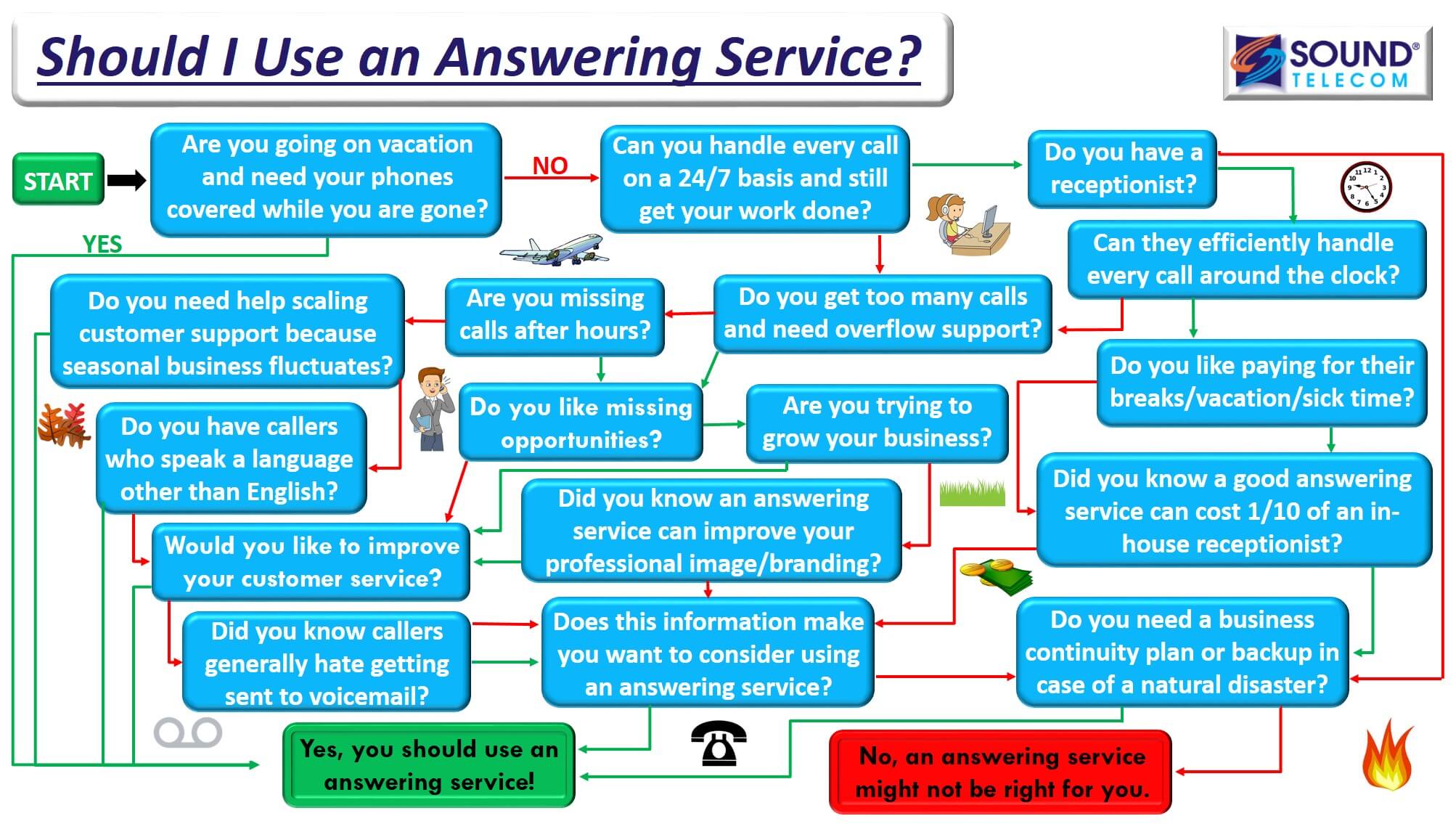
People in many different industries frequently ask, "Should I use an answering service?" This decision infographic should help answer that question.
(Hint: click the graphic to maximize the size so you don't strain your eyes)
To accurately use this decision making infographic, start at the top left. Answer the first question in the blue box yes or no. Follow the green line to the next question if you answered yes or follow the red line to the next question if you answered no. Repeat for each question you encounter until you reach your final destination.
There are lots of different reasons for using an answering service. So, when people ask, "Should I use an answering service?" there are plenty of factors to consider. Sometimes a seasonal answering service is all that is necessary to help manage an influx of calls during peak times of the year. Other times a simple after hours answering service is great for capturing additional business that dials once you've left the office for the day. Many people use a 24/7 live answering service to ensure they never miss an opportunity to capture a lead or provide great customer service. Others make an answering service part of their business continuity plan.
So, if you are asking yourself, "Should I use an answering service?" go ahead and run multiple routes through the decision infographic depending on the possible scenarios you could be facing. It is worth noting that even if you already have a receptionist in place, there are plenty of ways the two can coexist and complement each other.
If the answer to the question of "Should I use an answering service?" is YES, often times the next question is "How much should an answering service cost?" That's certainly a great thing to know, but keep in mind that cost effective design is more important than price.
If you have any bonus questions after exploring the Should I Use an Answering Service decision infographic, feel free to contact us.
Related Posts
Do I Need a Call Center or an Answering Service?